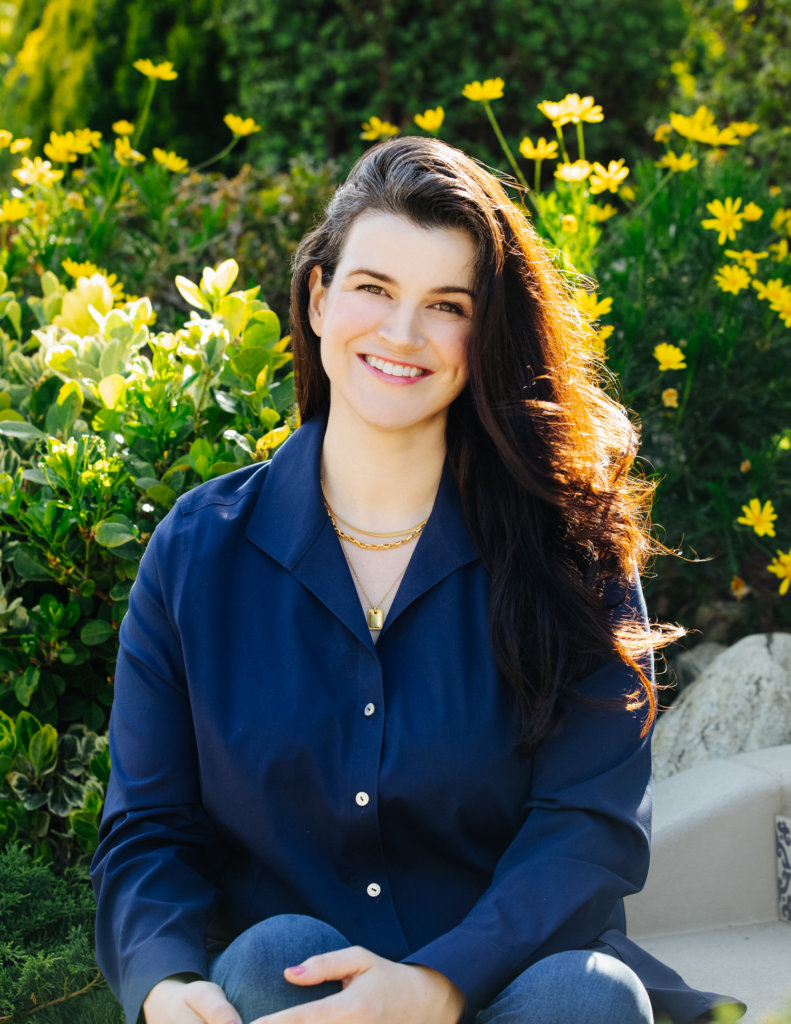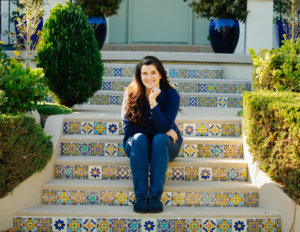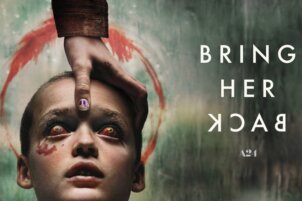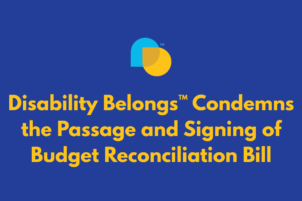Los Angeles, CA, April 15 – Since its premiere at SXSW 2021, the feature film Best Summer Ever has been making waves in the entertainment industry for its authentic representation and inclusion of people with disabilities both in front of and behind the camera, all wrapped up in an energetic and joy-filled musical. RespectAbility recently had the chance to interview one of the film’s producers, Leah Romond, who is also a current Senior Production Advisor at RespectAbility. Romond speaks openly about her experiences with traumatic brain injury, pivoting from law to producing in entertainment, and working at RespectAbility.
In 2012 Romond had mononucleosis, which turned into viral encephalitis that resulted in a brain injury due to brain inflammation. She explained her experience as living with one brain for part of her life and after the injury, being given a completely different brain. Before the injury, “my brain was like a super computer, very detail oriented. As an attorney, I had to keep a lot of facts in my brain and be able to recall them at a moment’s notice,” Romond said.
After the injury, she went through speech therapy and re-learned how to understand a paragraph of text and recall what she read. It was a big change for Romond both in body and mind.
“As a lawyer, you’re paid to be right and know the answer,” she said. “And then I switched to ‘I don’t even know how my brain or my body works, so I certainly don’t understand anything external to me.’”
Nevertheless, Romond says, “essential Leah stayed the same. My soul did not change.”
From Law to Entertainment
Romond’s pivot from working in law to producing in entertainment was a slow seven-year process. At first, before she and her doctors understood the extent of her brain injury, she thought her new cognitive challenges were the result of nerves and increasing perfectionism. Romond decided she needed to rewire her brain and try to go with the flow.
“I thought of the scariest thing I could think of, which for me was comedic improvisation. I was someone who was used to being well-prepared for any situation, and now I had to go onstage unprepared and create something on the spot with others,” Romond remembers.
After building up the courage for her first class, Romond started performing with a team at indie improv shows at various spots around Hollywood, including The Second City and The Complex. She completed the improv training program at Westside Comedy Theater in Santa Monica, where she auditioned for, and was placed on, regularly-performing improv house teams. The actors became a community for her, and “I started laughing a lot, like big belly laughs,” Romond said. “I remember thinking, this right here is really valuable.”
Romond often tries to do things she’s scared of and gain new experiences – including in 2017 traveling solo to two new continents. “Give your body and mind the rest and accommodations it needs, but don’t ever tell yourself I can’t do this,” Romond encourages.
Speaking as a person with a disability, Romond says the problem is not the disability itself, but the way society is set up that doesn’t support people with disabilities. “Having a disability is not a tragedy; it’s not a shame,” Romond said.
Finding Zeno Mountain Farm and Creating Best Summer Ever
Zeno Mountain Farm is a camp in Vermont. It’s a community of friends with and without disabilities. “No one pays to attend, and no one is paid to work there. Everyone is welcomed back for life,” Romond explained.
Romond first learned about the camp during a band concert in 2007 before her brain injury. She remembers wanting to learn more and attend, but she was in law school and couldn’t take time off. Flash forward to 2014. Romond was back seeing the band! After the concert, she ran into two of the founders of Zeno Mountain Farm. They were in the process of moving the camp to Vermont. Romond was invited to attend that summer, and this time it was the right time. It was two years after her brain injury. Romond learned they have a camp for people with traumatic brain injuries with the Love Your Brain Foundation.
“I was welcomed with open arms,” Romond said. At Zeno, “we do things best, not the best for people with a disability, but the best that can be done,” Romond explained. Some of these activities include making short movies and putting on a full-length staged musical every summer. At Zeno Mountain Farm there are no campers or counselors. It’s a family. Everyone is equal, bringing their unique gifts and talents. The camp and the close-knit group’s love for movies, acting, and musical theatre, led them to taking on the challenge of creating their first full-length movie musical, Best Summer Ever.
Best Summer Ever won the Final Draft Screen Writers Award at the SXSW (South by Southwest) Film Festival. The film will be released to the public April 27, 2021. Be the first to watch Best Summer Ever during a one-of-a-kind movie premiere! Pre-order the film on iTunes or Fandango and then register for the free premiere on Friday, April 23.
The cast and crew is comprised of people with and without disabilities. “We wanted to show what was possible, and our experience at camp,” Romond explained. “I want to re-emphasize none of the challenges during production had anything to do with disability.”
Best Summer Ever takes place in a high school where disability is integrated. People with and without disabilities interact together. But disability is not the focus of the story. “Our schools often separate people who are in special education. Everyone misses out on friendships,” Romond said. She continues, “of course, someone with Down Syndrome can be a cheerleader, and people who are disabled have romantic relationships. I hope the movie helps people think, ‘how can I make my world reflect complete inclusion?’”
RespectAbility and Beyond
Romond first became involved with RespectAbility in 2019 through the Summer Lab Program for Entertainment Professionals with Disabilities. She saw a post about it on Facebook from a friend.
“The Lab was life-changing for me,” Romond said. During the Lab, speakers emphasized the importance of how personal stories make each person unique. Romond remembers realizing for the first time that there is professional value in the disability experience she had. “It was a game changer for my self-esteem,” Romond said. “Everyone at RespectAbility has been so encouraging to me and are such great advocates.”
When Lauren Appelbaum, VP of Communications, offered Romond a role as Senior Production Advisor, Romond was hesitant, but Appelbaum said, “I know you can do this.”
“It is such an accommodating and collaborative workplace,” Romond said of RespectAbility.
After her injury, Romond has become much more conscious of where she places her energy and how she dedicates her time. “American society values output, and the fact that people think because someone’s body looks or operates in a unique way that it means their contributions aren’t as valuable, or that their soul is different, is very misguided,” Romond said.
Having processed information one way before her injury, and another after her injury, she realized that everyone’s brains process information differently, but most people don’t recognize that fact because they go through life with the same brain. Romond’s brain and how she processes is still changing.
“We don’t have as much control as we think,” Romond said. “I reflect on the presence of my soul in the universe and our limited time on earth. I think, how does my soul affect other souls, and what can I do to decrease pain in other souls and increase joy or happiness?”









